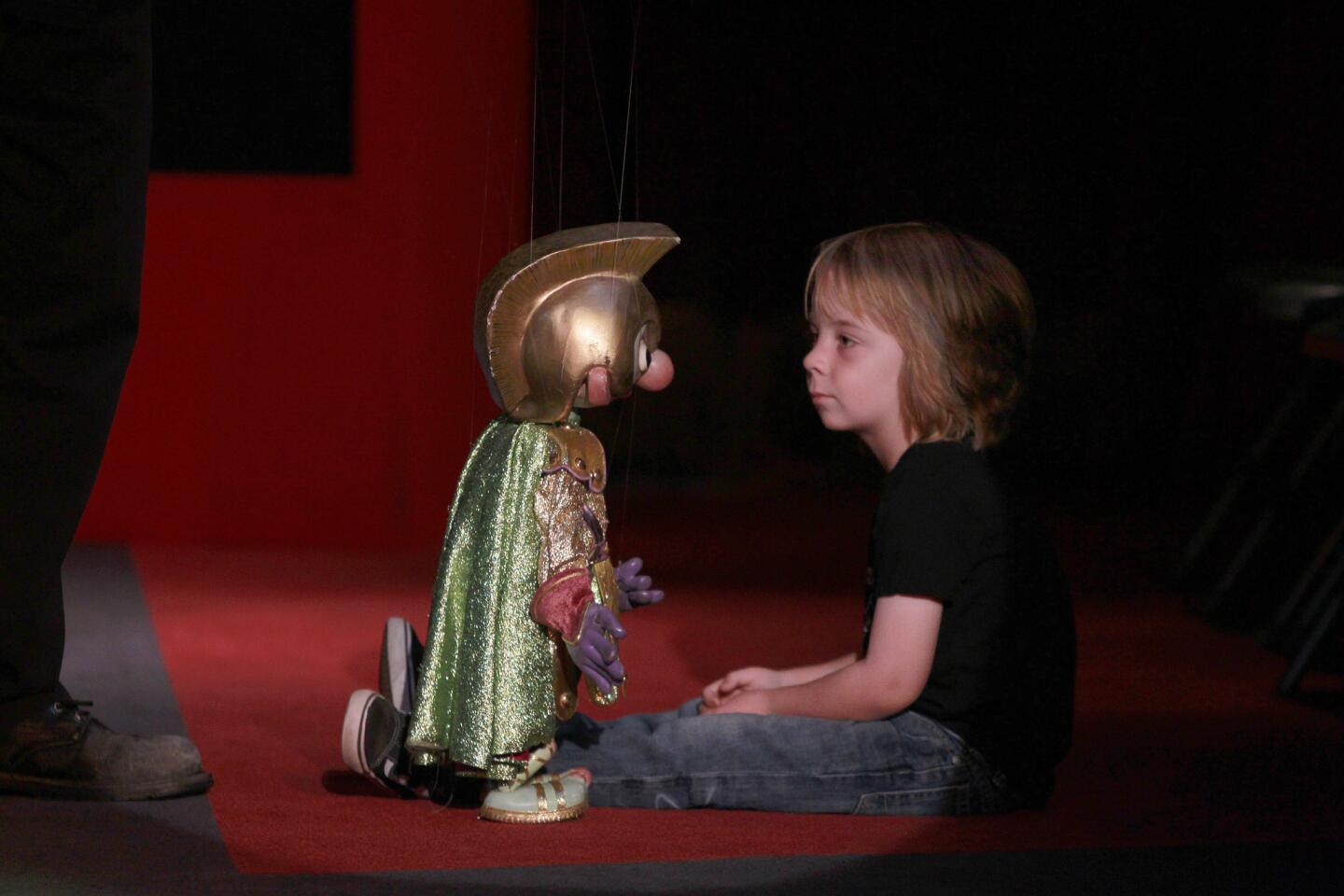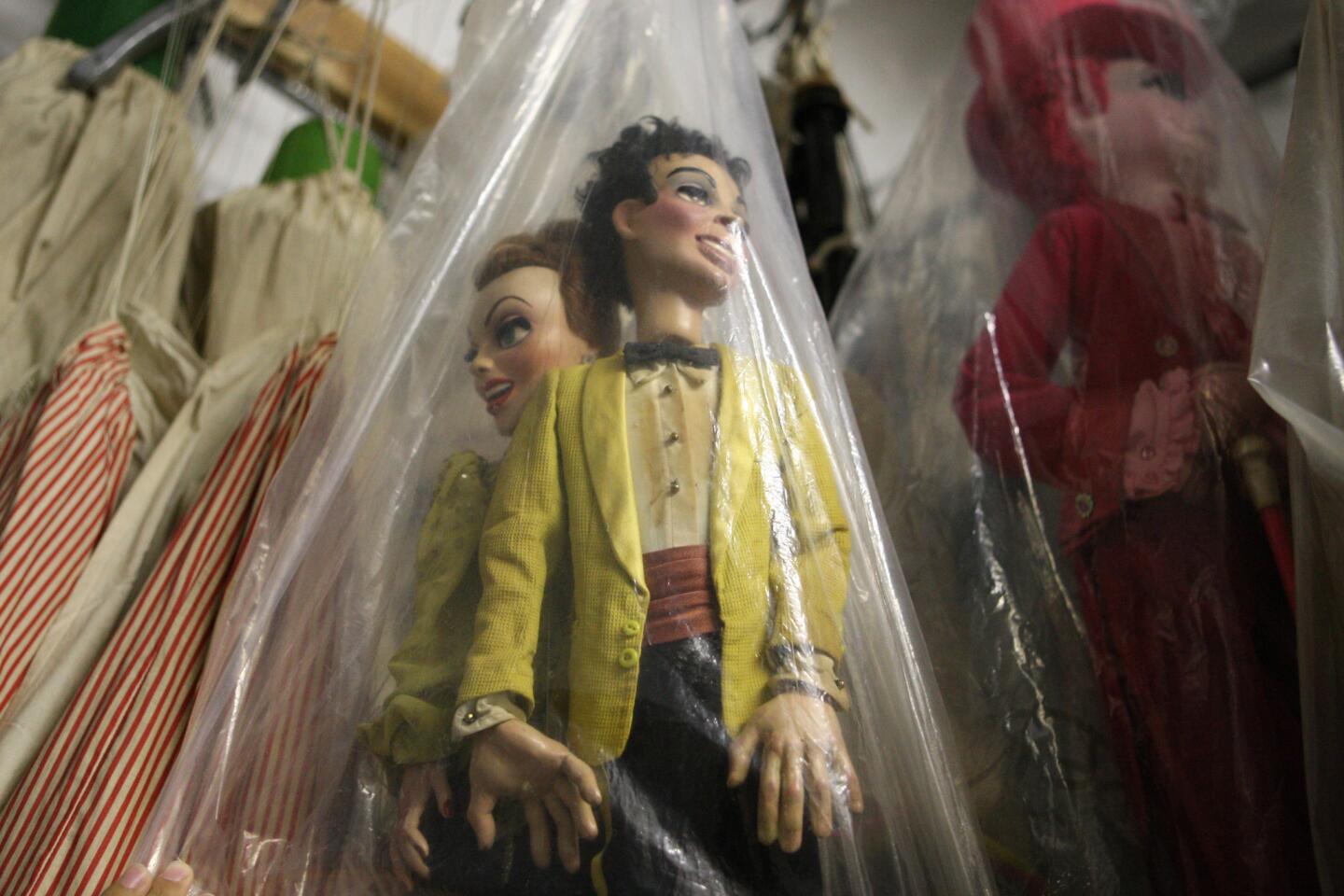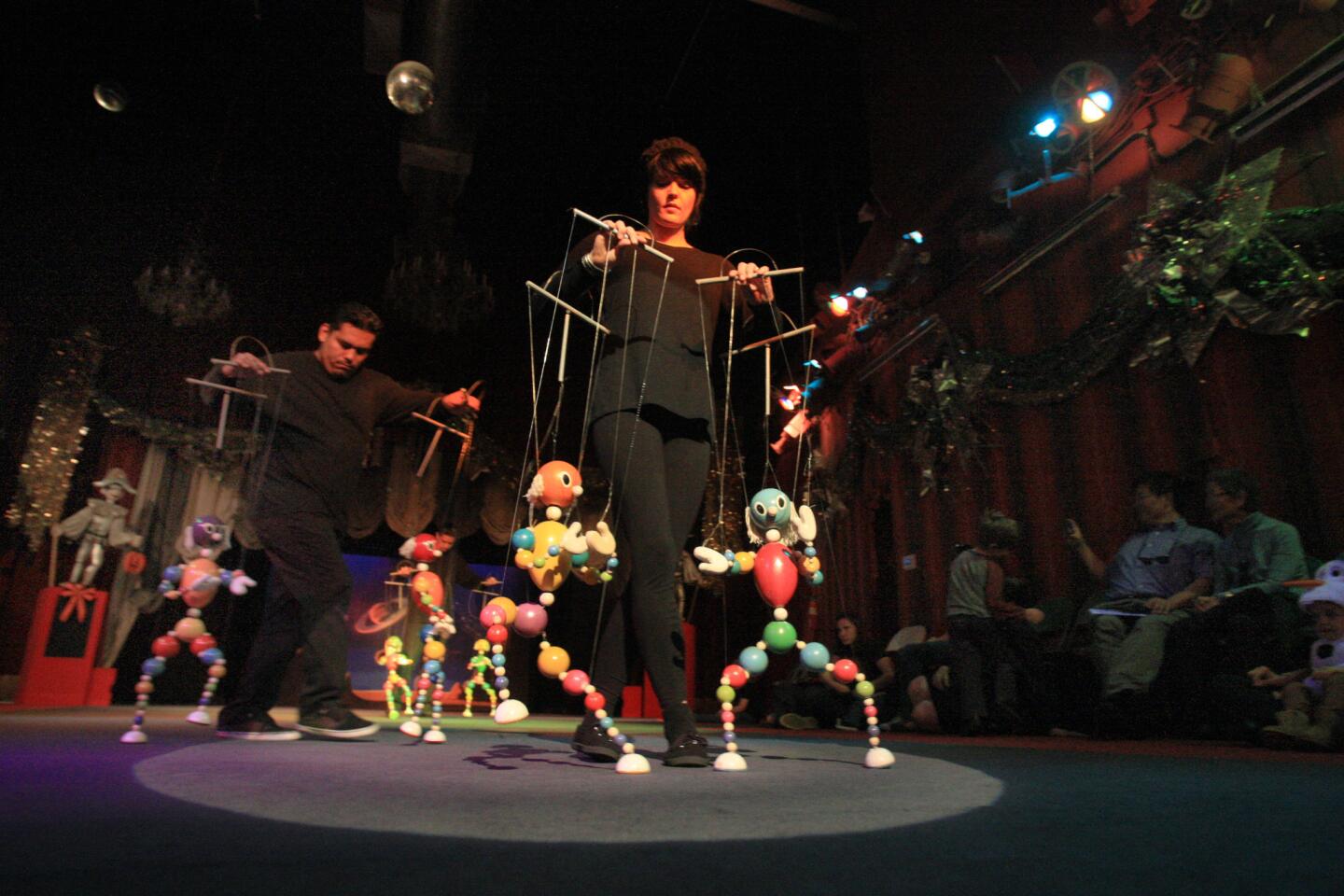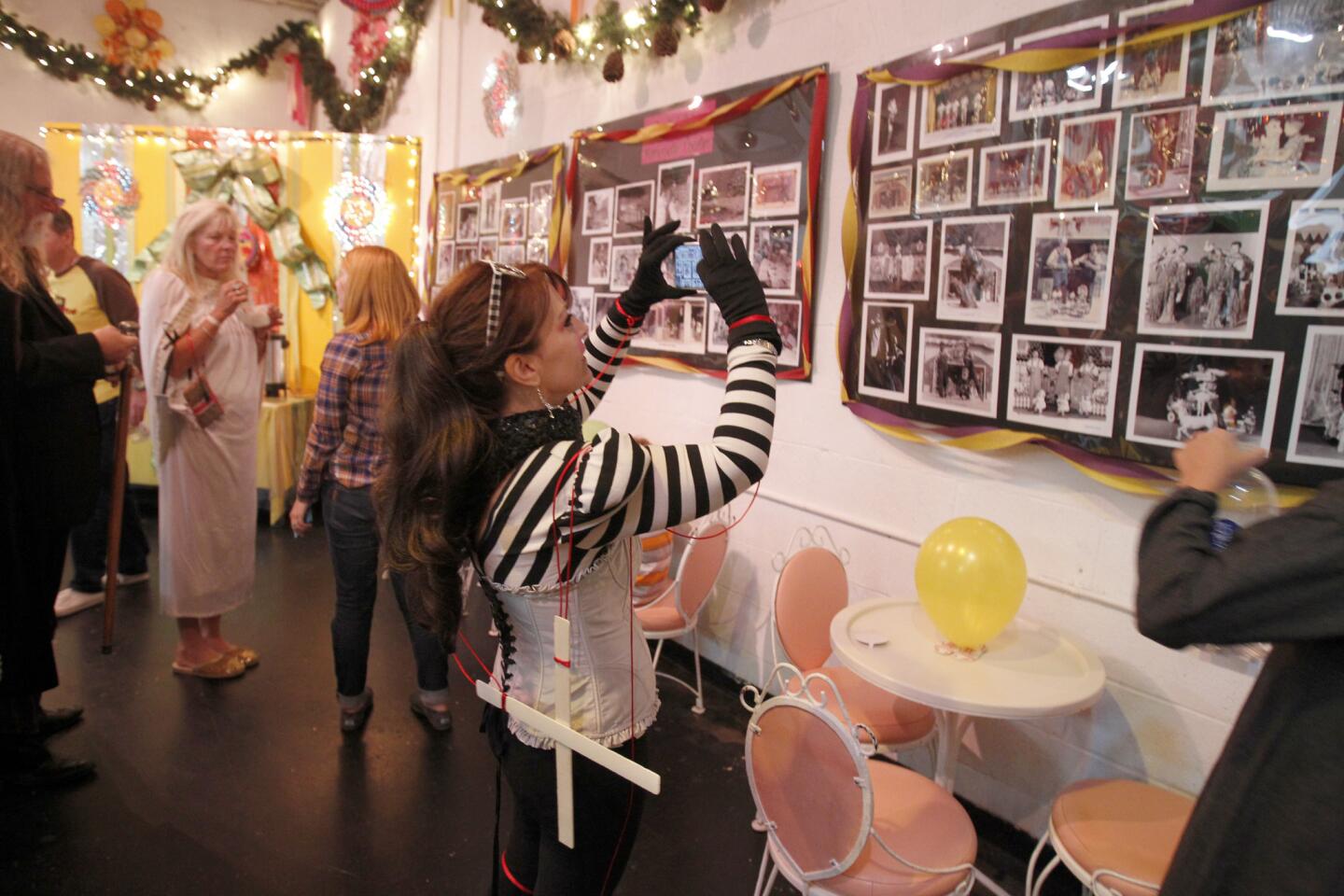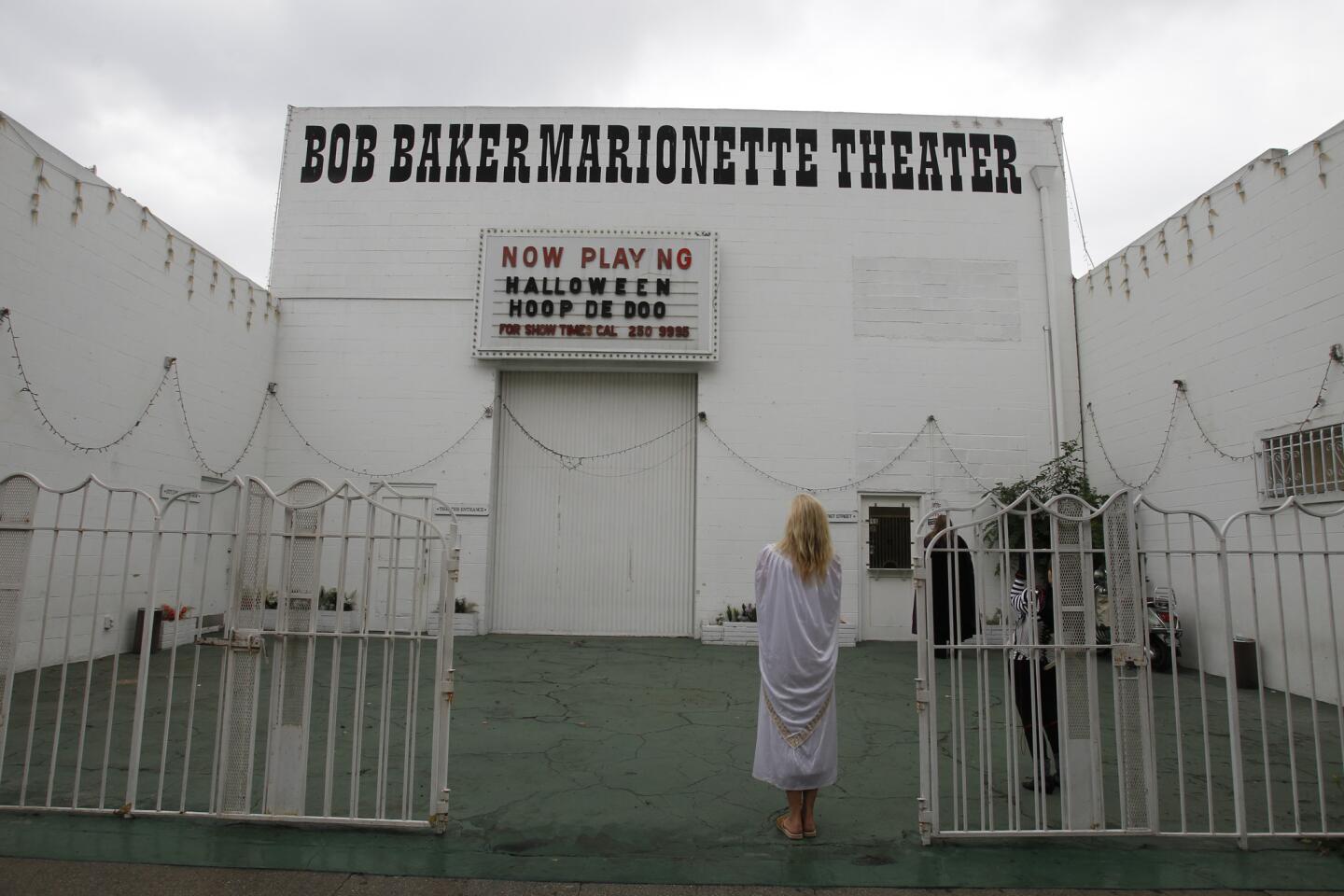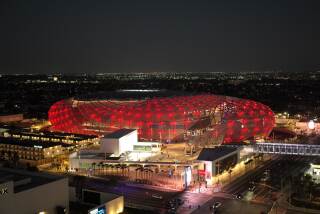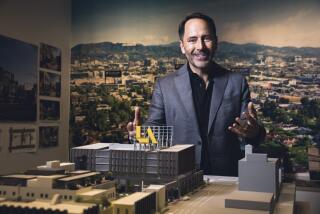Future of Bob Baker’s puppet theater, once an L.A. icon, is uncertain
The boxy white building with weathered paint in Echo Park offers few clues that colorful, fanciful puppets dance inside.
For more than half a century, the Bob Baker Marionette Theater has entertained children, as it did on a recent Friday when small boys and girls ignored their parents’ smartphones to marvel and giggle as puppets rested on their laps or flew toward their faces.
“It’s an art,” said Molly Damecourt, 37, who came to the theater for the first time with her toddler son, Pruitt, on Halloween morning. “In the age of technology it’s nice to have something that is so hands-on.”
But with the theater’s lease ending next March, the building’s owner, Eli Elimelech, has drawn a blueprint that is more in keeping with changes in the trendy neighborhood — while preserving the spartan-looking little building that Baker’s marionettes call home.
To do this, Elimelech will design his mixed-used development to wrap around the theater, saving much of the existing structure. It’s an unusual approach, but necessary since the theater was designated a historic cultural landmark by the Los Angeles City Council in 2009.
The designation gives the building — or at least its architectural shell — a protected status. Less clear is the future of the performances, which are the reason the otherwise unremarkable building is considered special.
Tentatively named Marionette Square, Elimelech’s new complex would span over much of the existing building. The development would hold about 100 apartments, as well as a strip of commercial space for retailers, according to Steve Albert, the project architect. Between 5 and 10% of the units would be reserved for affordable housing.
Elimelech says he isn’t sure when he will begin building. The 90-year-old Baker, who is in hospice care, can no longer tend to his puppets, but the puppeteers plan to put on shows for as long as they can.
“I just want to have the plan ready for the building,” Elimelech said. “The theater will still be operating. It is still surviving.”
But, he said, he doesn’t know how much longer a theater that has been struggling financially for years can keep the curtains from coming down.
New developments like Marionette Square are emblematic of the changes rolling through Echo Park, fueling concerns over gentrification in the area. Young college graduates continue to flow in, pushing out working-class immigrant families. The neighborhood’s immigrant population has dropped nearly 15% since 1990, according to 2010 Census figures.
Elimelech’s project was made possible because of the theater’s decline.
Once the theater’s lease ends, it will transfer to a month-to-month agreement, making for a tentative existence. Baker’s business has been strained for years, burdened by late mortgage payments and taxes. Last year, the theater property was sold to Elimelech for about $1.5 million.
In October, the Cultural Heritage Commission’s president, Richard Barron, asked whether the landmark is worth preserving without its puppets or famed shows.
The theater, he said, was not a landmark because of its architecture, but because of the artistry that took place inside and Baker’s contribution to the city’s entertainment industry.
“I want to see if there is a better way to give a better legacy to this man who contributed all his work for years and years,” Barron said. “It was a sad, sad thing to think of a dusty lobby with a picture of Bob Baker in it. It brought tears to my eyes.”
The commission plans to hold another meeting to discuss whether it is possible to create a space within the complex for the puppet shows to continue. Both Albert and Elimelech say they are willing to work with the commission to redesign the plans.
“We plan on using some area with puppetry as its theme,” said Albert, whose resume includes mixed-use apartment complexes throughout Los Angeles. “There may be an area where people who want puppet shows can carry on that tradition.”
Elimelech and Albert have been asked to estimate how much renovations would cost, both with and without preserving the theater’s architecture. The commission will determine whether it is possible to create an endowment or nonprofit organization to help fund the performances.
About 35 people trickled into the theater Halloween morning for the Hoop-De-Doo puppet show. Sheri Watson bought her ticket after hearing that the theater might close.
“If we lose this place, we would be losing an L.A. icon,” Watson, 55, said. “It reminds me of animals that become extinct. Once they’re gone, they’re gone for good.”
Dante Ruiz first stepped into the Bob Baker Marionette Theater nearly 20 years ago. He remembers running the old lighting system when he was first hired, working his way up to puppeteering under Baker’s guidance. He was nervous the first time around, operating a lone Indian boy marionette during a Christmastime show.
Now, Ruiz plays a much bigger role in the production, controlling marionettes of all shapes and sizes. As he packs up and leaves the emptied theater after the show, Ruiz says he would do anything to keep Bob Baker’s marionettes going.
More to Read
Sign up for Essential California
The most important California stories and recommendations in your inbox every morning.
You may occasionally receive promotional content from the Los Angeles Times.
